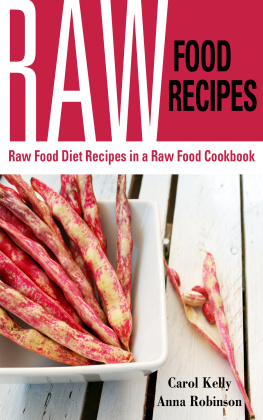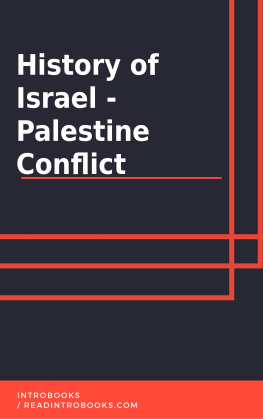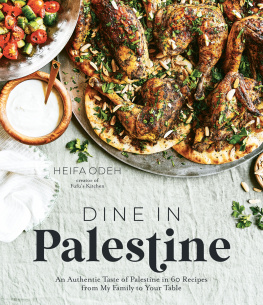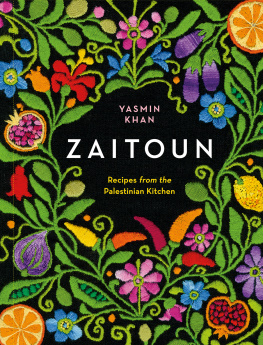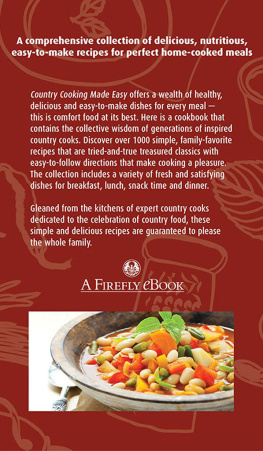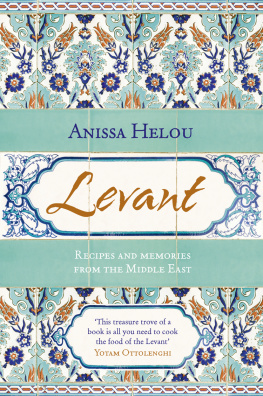Contents
Guide
BALADI
PALESTINEA CELEBRATION OF FOOD FROM LAND AND SEA
JOUDIE KALLA
FOOD PHOTOGRAPHY
BY JAMIE ORLANDO SMITH

Misilyah Village, Jenin
Areeha (Jericho)
Introduction
I love the word Baladi. As with most Arabic words, it has many meanings, but above all it means my home, my land, my country. To me, Palestine is all of these things, and not just in a geographical sense, but in the sense of my life and my family, too. It has been home for my family for hundreds of years, and embodies everything I am and everything I have been raised to be. I feel very blessed to have been born a Palestinian, and to have a platform to discuss all the wonderful things about this amazing, deep-rooted, historical, religious and cultural country with so much to offer especially in the culinary department.
While talking about Palestine, one must understand the deep complexities that run through this piece of land. Over time it has been in the hands of many, which has resulted in a huge influx of different cultures. Palestinians have struggled to retain their identity through this occupation for over 70 years, and as a people it has made us louder and more focused on keeping our history and our traditions well and truly alive, passed on to future generations through music, design, food, technology, art and literature.
As with many Palestinians, almost 700,000 to be precise, my family were among those who had to flee their homes in 1948 during the Nakba (the catastrophe that resulted in their expulsion), and with that came major changes, such as having to start life in a new place, and adapt to a different way of living and eating. Although the countries surrounding Palestine may seem similar, in fact they are very different. It is as you would find in Europe countries may be close to one another, but the traditions and lifestyle are not the same. My grandparents had to adjust, and over time their food changed, mixing with Jordanian, Lebanese, Egyptian, and most importantly Syrian food.
The Palestine of my grandparents was known for its abundance of fresh fruit, vegetables and herbs. It is true that there are areas of luscious greenery, with fruit, citrus, almond and olive trees scattered across the landscape. Yet throughout the different regions, you will find different terrains areas of uninhabited land that looks like desert, and colder areas such as Safad in the north near the Lebanese border. In some you have more grains and pulses, while others are more fruit and vegetable based. And then you have the beautiful sea routes, near Yaffa, Gaza and Haifa, which carry a different cuisine to the rest of the country, that is fresh, tangy, herby and spicy, heavily laden with fish and vegetables. Today, all over the country, life continues in the ground, above the ground and all around you in defiance of the daily hardships of life under occupation. This is the fabric of Palestine and its people. When you are situated in such a place on the earth, with all seasons and a cross trade from Europe through to Asia, you cannot help but create the most wonderful dishes from all the produce at your fingertips.
This book was very exciting to write, because I had the chance to look at Palestine anew, step by step, through different areas, different seasons, and cuisines that change from location to location. Looking at how certain towns and cities cook the same dishes so differently that they are almost unrecognizable has really opened my eyes to the fact that even internally the country has its own differences from region to region. I have made choices as to which versions to include here based on the way my own family cooks them, but that is not to say other ways are not correct.
Ramallah
Gaza Seaport
Old City, Al-Nasira (Nazareth)
Al-Khalil (Hebron)
Battir, Beit Lahem (Bethlehem)
Palestinian tatreez clothing
Dome of the Rock, Old City, Al-Quds (Jerusalem)
Old City, Al-Quds
Aftemos market, Old City, Al-Quds
Old City, Al-Quds
Ein Hamed, Al-Quds
Ramallah
Some may question the origins of these recipes, and whether they are truly Palestinian. My grandparents lived in Palestine until they were in their mid-thirties, so the basis of their food culture was purely Palestinian until then. This is how we eat in our home, how I cooked at my restaurant and now cook at events. It is what I learnt from my mother and her mother. The majority of recipes are authentically Palestinian, but I also try to bring a little of other countries to your table too, reflecting my familys real life experience in every way. It is the essence of Baladi home wherever that may be. I think it is important to know that you can create many dishes that have a nostalgic feel to them without recreating a specific dish from a specific place. We are made up of the fabric of so many experiences, and this is what I love about our food.


